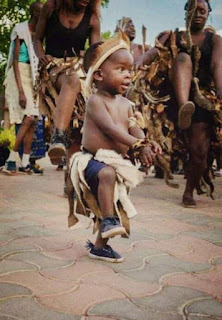A STORIED ACCOUNT OF MUJOKWANE KANJEKWANE AND HIS NGUNI PEOPLE OF ZAMBIA..
A busy market and area named after a Nguni Warrior
There is a very famous market in Chipata City, East of Zambia called Kapata market. The name comes from a Nguni warrior who descended from the larger Zwangendaba Nation. His most common name was 'Kapatamoyo' and yet his foremost name which is a Zulu one, is MUJOKWANE.
Who was Mujokwane?
Mujokwane was one of the notable sons of a decorated Induna of Zwangendaba called Njekwane. Njekwane commanded the Zimpofu regiment and trekked with the Mphezeni Nguni group after the division of the larger Zwangendaba Nation.
But who again was Njekwane?
Authors have been divided on the clan name of Njekwane. But what is certain is that, Njekwane came from the house of Hlasthwayo Jele's cousin, Mpange. Prince Mpange had married Manyuwazana. It is in this same house, that a Nguni warrior was born. His name was Njekwane.
Principal Wife of Njekwane
When he was of age, Njekwane married MtongaJojo and through her, he fathered the following children; Kapatamoyo, Sondwani, Hoye, Chafumela, Chulu, Mene and Mazwe. As has-been said already, Njekwane commanded the Zimpofu regiment and he led this decorated regiment during the November 1835 crossing of the uGwembe river.
Death of Njekwane at Mpinduka hill
Njekwane wandered with Zwangendaba from his base in the St Lucia Bay area upto the time of his death in 1845. Then during the succession wrangles that engulfed the Zwangendaba Nation in 1849, Njekwane sided with Mphezeni Jele and they trekked the South West Route into the land of the Bembas.
Again when Mphezeni decided to move, Njekwane was right behind him. The movement took this Nation to present day Mozambique and whilst camped at the Mpinduka hill, the now aged Njekwane went to sleep with his forefathers, the year was 1868.
Mujokwane establishes his empire
After the Angoni-British War of 1898 and following the return of King Mphezeni to his base after his exhile in the Vubwi valley, most sons of the King and decorated Indunas were recognized as Makhosi under the overall King, Nyandezulu Mphezeni. The bloodline of Njekwane was also picked to be elevated to this status.
It was 'Kasambulopa' KaNjekwane, an elder brother of Mujokwane, who was pointed to be accorded the Inkosi status. However, Kasambulopa, another warrior son of Njekwane in his own right, had gotten fond of the Mthenguleni area where he was an established Hunter. He thus declined to move to another area where he would be an Inkosi, suggesting instead that his young brother, Mujokwane who had also been nicknamed 'Kapatamoyo' by the Chewas to instead be crowned as an Inkosi.
Kapatamoyo was given to Mujokwane by the Chewas because of his daring fighting antics that clearly risked his life. The name became his signature name, overshadowing the Zulu name that he was given at birth. And that was the name that he would adopt once given the seals of an Inkosi. Thus Mujokwane, who had five wives, reigned as the first Inkosi Kapatamoyo.




Kindly revisit this article as there is no ancestor called Njekwane in eThandweni. Further, Mjokwane was a first cousin of Zwangendaba and his father Mphange was a young brother to inkosi Hlatshwayo kaMagangatha Jele. Inkosi Kapatamoyo 1 was Nthonga kaMjokwane Jele not Mjokwane himself.
ReplyDelete